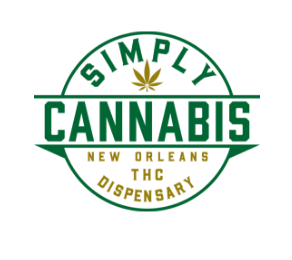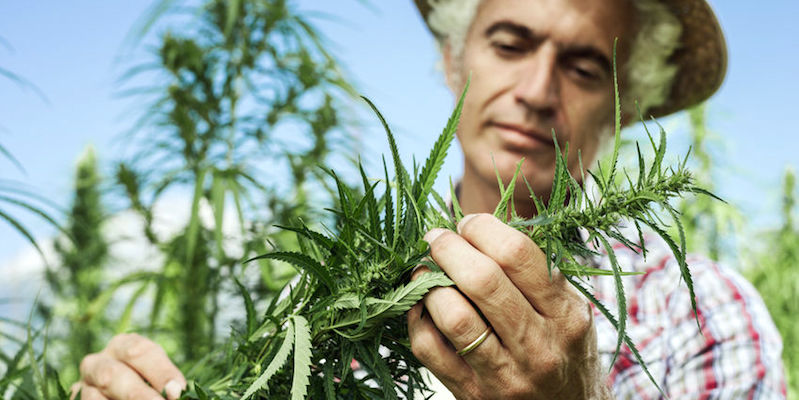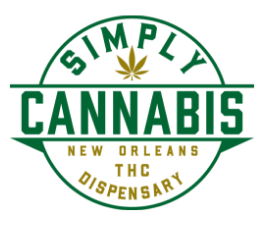The Farm Bill Could Mean More Research and Better Products for Louisiana CBD Consumers
In December, Congress passed the Farm Bill after much deliberation, introducing major mandates around hemp cultivation. The bill sets the stage for CBD to break through to the mainstream, which in turn can directly affect both producers and consumers of hemp and hemp-derived CBD products.
But does this mean that CBD became legal in all 50 states once President Trump signed the bill? Not exactly. Here are Simply CBD’s five major takeaways of what the Farm Bill means for the CBD industry and for the CBD market in Louisiana in particular.
1. Hemp Is a Legal Agricultural Commodity Nationwide
The new law makes hemp a legal agriculture commodity, with the U.S. Department of Agriculture retaining federal authority over the crop. According to the statement by the FDA Commissioner Scott Gottlieb, the new law “changes certain federal authorities relating to the production and marketing of hemp, defined as cannabis (Cannabis sativa L.), and derivatives of cannabis with extremely low (less than 0.3 percent on a dry weight basis) concentrations of the psychoactive compound delta-9-tetrahydrocannabinol (THC).”
The biggest deal here is that it means hemp will no longer be an illegal substance under federal law, and will be removed from the Controlled Substances Act. It also means that interstate commerce is now legal, so a state where it may be illegal or controlled can’t confiscate products moving through it from one legal state to another. The FDA still has the authority to regulate products containing cannabis or cannabis-derived compounds, continuing to enforce the applicable laws and “providing potential regulatory pathways for products.”
2. States Can Still Ban Hemp-Derived CBD
Legalization of hemp does not automatically mean the legalization of hemp-derived CBD. The DEA still considers cannabis-derived CBD to be a Schedule I controlled substance. In Louisiana, hemp-derived CBD products have been legal and widely available to anyone over 18 without prescription. The Farm Bill also found support here, as all six members of the Louisiana House delegation signed off. While the changes might signify considerably more options available to consumers, it’s not clear this early in the game whether the growers of hemp would be affected locally. Louisiana’s climate is favorable to hemp cultivation, and, finally, a state-regulated production of medical marijuana is expected to start sometime this year, but the Farm Bill has no effect on state-legal cannabis programs.
3. Expect New Federal Regulations in 2019
Federal agencies will be adjusting their policies regarding CBD in response to this bill. The DEA won’t have a choice but to issue a rescheduling position on CBD to be consistent with the changes. And, before the new federal regulations about hemp production come into effect this year, the FDA, the DEA, and the U.S. Department of Agriculture would all have to come to a clear understanding on how the industry will be regulated. While we don’t yet know what these changing regulations will be, the shift should be favorable for the CBD industry and consumers.
4. Change Might Be Slow
Before the federal agencies involved in the regulation of hemp cultivation agree on how to proceed, and state and local government agencies formulate their courses of action, there might still be some confusion around CBD for manufacturers, retailers, and consumers. Also, the FDA will need time and research to come up with regulations concerning the safety, quality, and consistency of CBD products. We’ll also probably see variations of what’s considered legal and allowable from state to state.
5. CBD Will Become More Mainstream
CBD businesses will grow, and we’ll see more investment and research within the industry. Even with all the potential hurdles, the regulatory uncertainty, and the as-yet-undefined deadlines, the passing of the Farm Bill leads to optimism about the future of the industry. We should expect to see a lot more well-funded research, investment, and potential growth of the CBD businesses with the proper financial backing.
The bill is expected to pave the way for more research on CBD and hemp specifically. The 2014 Farm Bill was intended to generate and protect hemp research, and the 2018 version continues that effort by re-extending protections. This will hopefully lead to a wave of innovative and improved products, which is going to ultimately benefit consumers.
While these positive changes will take CBD to a new level, it’s still important to know what’s in your CBD products. At Simply CBD, we are actively following scientific and legislative developments and are always available to answer any questions you have about the CBD market and any of our products. We’re also more than happy to show you how to use any of our products and discuss the dosage that might work best for you.
Stop by any of our Simply CBD dispensaries across New Orleans to learn more about CBD and to check out our huge selection of hemp-derived CBD products.




